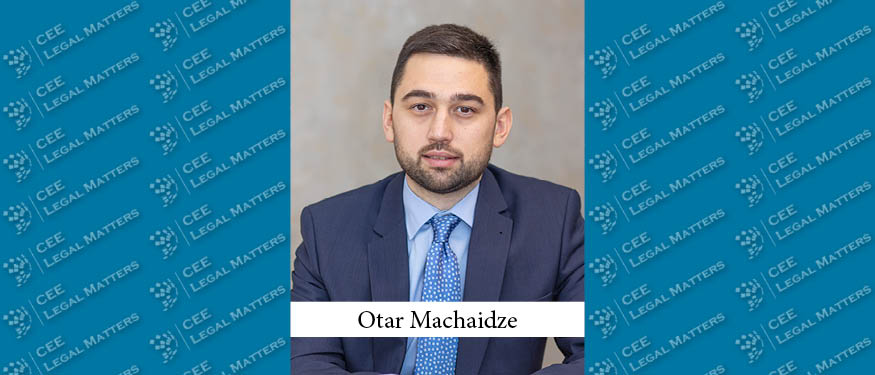The Austrian government has recently enacted the Start-Up Promotion Act to nurture its start-up ecosystem and enhance employee participation in corporate growth. Wolf Theiss Partner Hartwig Kienast analyses how this legislation integrates with Austria’s existing legal framework and its implications for start-ups, employees, and the broader economic landscape.
Integrating with Austria’s Legal Framework
The Start-Up Promotion Act serves as a cornerstone for Austria’s ambition to foster a more vibrant start-up environment and attract top-tier talent. According to Kienast, it “introduces a further form of tax benefit for employee shareholdings.” This initiative builds on existing measures by offering new tax incentives for shares transferred to employees, either free of charge or at nominal value, starting from January 1, 2024.
In addition to these tax benefits, the legislation heralds the introduction of the “flexible corporation,” or FlexCo – a novel company form aimed at providing more flexibility and lower barriers to entry for new businesses. The act also reduces the minimum share capital requirement for limited liability companies to EUR 10,000, making it easier for start-ups to get off the ground.
Kienast emphasizes that these legislative measures aim “to improve the legal framework in order to attract the best start-ups and talent.” Central to this effort is making employee shareholding schemes more attractive through tax relief and the issuance of “enterprise value shares” in FlexCo entities. This strategic move is anticipated to enrich Austria’s start-up ecosystem, though, according to Kienast, its practical outcomes remain to be observed.
Start-up Growth and Employee Incentives
The Start-Up Promotion Act is poised to have a profound impact on the growth and financial stability of start-ups in Austria. One of the most significant changes, as Kienast points out, is the deferral of taxation on shares granted to employees. This approach not only benefits employees but also aligns their tax treatment more closely with that of investors. Specifically, “75% of the exit proceeds are taxed at a fixed tax rate of 27.5%, and only the remaining 25% at the progressive tax rate,” – a considerable shift from previous practices.
Furthermore, the act introduces enterprise value shares within FlexCo structures, offering a new class of non-voting shares. This development also simplifies the transfer process of shares, as Kienast highlights: “A long-standing demand was realized – the transfer of a share in a FlexCo no longer requires a notarial deed.” And this simplification extends to the acquisition and transfer of enterprise value shares, requiring only a simple written form, thereby reducing bureaucracy and legal hurdles.
The combination of tax advantages and the bolstering of employee shareholder status significantly enhances the appeal of employee share ownership. This, in turn, is expected to “motivate employees and foster their loyalty to the company, contributing to a more dynamic and committed workforce within Austria’s start-up landscape.”
Tax Benefits and Market Reflections
The Start-Up Promotion Act introduces clear tax benefits that are poised to have a notable impact on the market. Kienast explains that the act clarifies that “the granting of employee shares free of charge is not yet considered as taxable income at the time the shares are granted,” effectively preventing an immediate tax burden on employees. Additionally, a significant portion of exit proceeds is subject to a more favorable tax rate, which, combined with contribution deferrals on various tax liabilities, presents a compelling incentive for both start-ups and their employees.
These tax benefits reflect a strategic move to make Austria a more attractive destination for start-ups and skilled workers. However, Kienast also cautions that “it remains to be seen whether the new regulations will be accepted,” pointing to the stringent conditions for qualifying for these tax advantages. The success of these measures in stimulating the market will depend on their uptake and the degree to which they can meet the needs of start-ups and employees alike.
Navigating Potential Obstacles
Despite the promising aspects of the new act, Kienast acknowledges several challenges and criticisms concerning its implementation and broader impact. The legislation’s scope is “notably narrow, limiting its applicability to smaller companies with fewer than 100 employees and a turnover not exceeding EUR 40 million. This restriction could sideline fast-growing companies and scale-ups, which are crucial to the vitality of Austria’s start-up ecosystem,” he argues.
Moreover, the conditions for tax relief are stringent, requiring a minimum employment duration of three years and a five-year waiting period for the receipt of exit proceeds. “The reform does not help fast-growing companies and scale-ups,” Kienast concludes, indicating a potential gap in the legislation’s ability to fully support the diverse needs of Austria’s start-up sector.
This article was originally published in Issue 11.2 of the CEE Legal Matters Magazine. If you would like to receive a hard copy of the magazine, you can subscribe here.
















